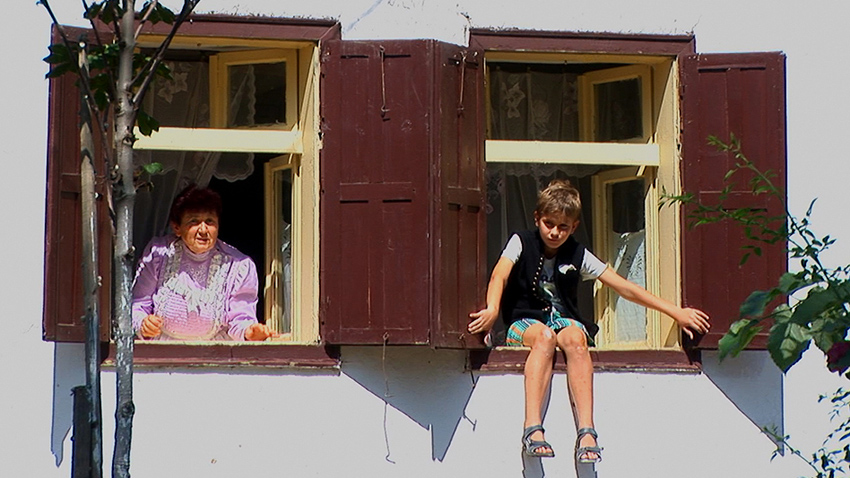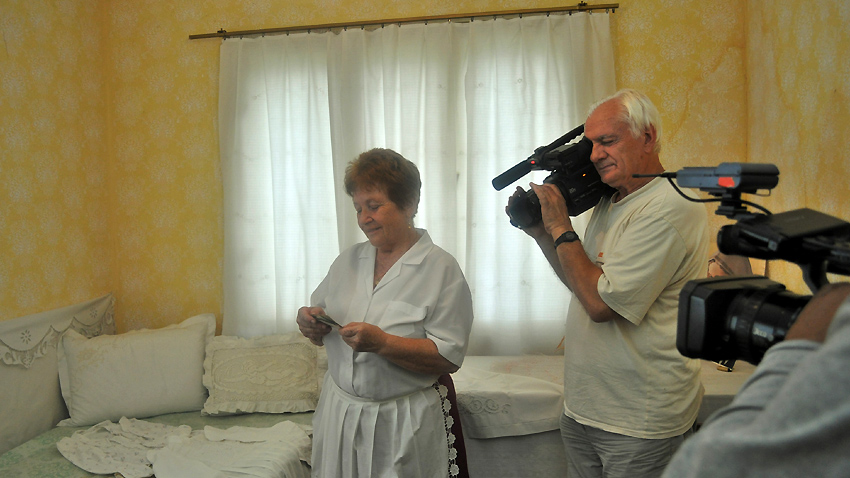The question WHERE DO I COME FROM is the first and most important one to ask as we grow and mature. In Bulgaria there is a small community that tends to place the issue of the past and history in the first place when answering this question. These are Banat Bulgarians. “These are incredibly warmhearted and open people who feel more European than the rest of Bulgarians and there is enough historical evidence to confirm this”, our colleague from Radio Bulgaria Veneta Nikolova tells us. She is the author of a documentary made for Tourism TV channel entitled Memories from Bardarski Geran. The film recounts the story of the largest Banat village in Bulgaria, Bardarski Geran and was shot in the summer of 2014. Its key message is that keeping in touch with the past and the legacy of our ancestors is vital. „For these people, the past is part of their identity. For instance, I myself have roots in Northwestern Bulgaria (just like them) but this has in no way determined my character or personality. For the Banat people however, this is decisive. They view the world through the prism of their small Catholic community. That's why I wanted to make a different film about them, a poetic narrative with a pinch of magic in it to touch the souls of spectators”, Veneta Nikolova explains.
„The history of Banat Bulgarians is dramatic. It was determined by the Uprising of Chiprovtsi in 1688 when the Bulgarian lands were part of the Ottoman Empire. The uprising was the work of the Bulgarian Catholics. It was crushed with horrible cruelty leaving only 2000 survivors in the prosperous Chiprovtsi and Catholics in Bulgaria became the target of fierce persecution by the Turkish authorities. At that point they decided to emigrate from Bulgaria, headed to the Danube and settled in the then Austro-Hungarian Empire. Today it is the region of Banat mostly in Romania and in part in Hungary. There the Bulgarian expats have been living for close to 200 years. These people are keen on keeping their mother tongue and ancestral memory, but are also involved in brisk exchange with neighboring European and Catholic cultures. After the liberation of Bulgaria in 1878 part of the Banat Bulgarians decided to return to their fatherland. The Bulgarian government awarded them with free plots of land and exempted them of taxes for 10 years. The expats returned to Northwestern Bulgaria but preferred to set up their own colony isolated from other villages. In this way five Banat villages emerged. Bardarski Geran is the biggest among them and the locals often point out that they are the residents of the capital of Banat Bulgarians.”

Together with Banat Bulgarians, Catholic Germans from the region of Banat migrated to Bulgaria in 19 c. They settled in the same Banat colony, but in separate neighborhoods. At the end of World War 2 however ethnic Germans were forced to go to Germany by Hitler, and left the village for good. Today there is a single German lady surviving there and both the German cathedral and the German school are threatened by ruin. The village has unique architecture. It was designed in the middle of nowhere by an Italian architect invited by Tsar Ferdinand. A single road connects it to the rest of the world, or rather separates it from the world.
„They wanted to live separately being aware of their otherness and exceptionality. As one of the characters in the film says, arriving from Banat in Bulgaria they found many people wearing traditional full-bottomed breeches, sat on tripods and attending working bees, while the Banat folk dressed the European way, attended ballroom events etc. They saw themselves as Europeans, superior to Bulgarians. This perception survives to the present day. It is presumed that the Banat people were the first to import to Bulgaria the spring beds and the steam locomotive”.
 Veneta admits that work on the documentary has made her think of something of paramount importance:
Veneta admits that work on the documentary has made her think of something of paramount importance:
„Exploring the history and present of the Banat Bulgarians, I speculated what would have happened, how things would have worked, had the Chiprovtsi Uprising had turned out successful. What would be if Bulgaria's liberation was in 1688? What kind of people would Bulgarians be had they not been brutally taken out of their natural European environment they belong to. Arguably, we would act and feel as genuine Europeans had we had the chance of Banat Bulgarians who in the course of 200 years could communicate freely with European cultures. I ended up looking at the Banat Bulgarians as the desirable version of the Bulgarians that we could have become had we been liberated from Turkish rule two centuries earlier.”
English Daniela Konstantinova
Photos: Tourism TV and see.bg
April 25 is the birth date of Izko Finzi, part of the so-called "golden generation" of Bulgarian actors. For his 91-year earthly journey until now, Izko Finzi is drawing a lasting mark in the Bulgarian theatrical, film and cultural life. He was..
Bozhana Slavkova won the biggest international poetry contest Mili Dueli . She is the first Bulgarian author to have won the grand prix . 711 authors from 104 countries took part in the 9 th edition of the competition, and 3..
Bulgarian artist Dian Kostov is transforming the biggest basilica in Brussels with his art installation Crossroads – the price of choice , the Bulgarian news agency BTA writes. 17-metre scenes from the life of Christ and Virgin Mary will be..
"In a world that is already growing apart, holding hands becomes a silent prayer - a way to come together again". So begins the description of the..

+359 2 9336 661
